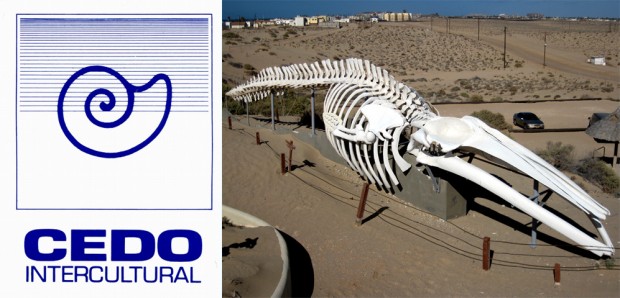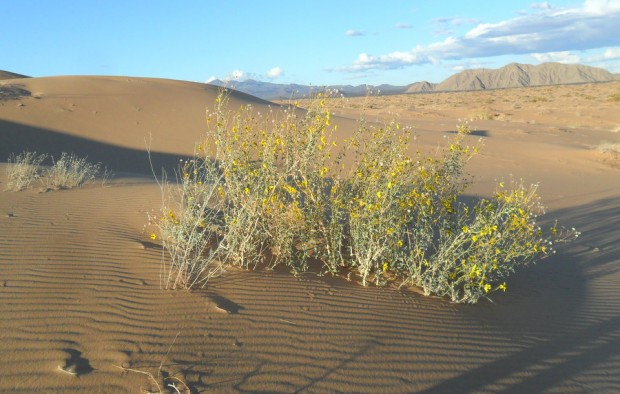Contributor: Intercultural Center for the Study of Deserts and Oceans (CEDO)
At the end of the 60’s the US environmental movement was in its infancy in a planet that was transitioning from local production to mass production due to accelerating technological advances. The use of “cheap” fossil fuels were intensified to produce plastics that flooded the market with different applications, the number of cars increased uncontrollably, and manpower was replaced by machines that produce more in less time. These apparent conveniences resulted in the pollution of water, air and soil; the extinction of many species; the over exploitation of marine and terrestrial resources; and health issues caused by pollution or changes in diet with processed foods in greater usage. Meanwhile for “Third World” countries, abundance became an unreachable dream, while the exploitation of their resources continued to sustain the accelerated consumption in the developed nations.
On April 22, 1970, after a lot of work to spread the word about the movement, the U.S. celebrated the first Earth Day, with the stated thegoal of better treatment of the small planet that plays the role of “mother,” giving us home, food and life. It’s said that more than 22 million of people came out onto the streets to celebrate the quest to change our life style, and what was achieved after many obstacles was the creation of the Environmental Protection Agency and growing interest in joining the movement and continuing the legacy, which today has become increased concern for conservation and the sustainable use of natural resources.
 What is life for Earth? The living and inanimate things have created perfect interrelated balance, where everything has a function and nothing is wasted. In nature, the concept of “garbage” doesn’t exist- everything is part of a perfect endless cycle. The sun moves the Earth, the Earth moves the moon, and the three of them together interact with the elements that move life. Life is this planet’s essence; it’s what make it unique. Without Earth there’s no life for the inhabitants and even when today people consider it possible to find a new planet to live on, the only one we know is ours, our home, our Mother Earth.
What is life for Earth? The living and inanimate things have created perfect interrelated balance, where everything has a function and nothing is wasted. In nature, the concept of “garbage” doesn’t exist- everything is part of a perfect endless cycle. The sun moves the Earth, the Earth moves the moon, and the three of them together interact with the elements that move life. Life is this planet’s essence; it’s what make it unique. Without Earth there’s no life for the inhabitants and even when today people consider it possible to find a new planet to live on, the only one we know is ours, our home, our Mother Earth.
This planet that sustains us is the only one our ancestors knew, your family, your children and possibly the future generations. If this planet has given us everything, don’t you think is time to show it respect? The change should start with you today! Let’s start an epidemic of respect for Earth and those who share the world with us. 10 actions you can take are listed below:
• Organize your family and friends to recycle your garbage separating it into plastic bottles, paper, aluminum, glass, etc. and create a plan to take it to a recycling company.
• Share your car with your neighbors, friends or people whom you know travel everyday in the same direction that you do, or use public transportation, or ride your bicycle, or walk to places near your house.
• Look for repair shops that can use your discarded electronics.
• Most of the electricity comes from fossil energy, when you save electricity you also reduce pollution. Turn off your electronics when you’re not using them and avoid the use of electric lights during the day.
• Avoid or reduce the use of disposable products, use durable water containers, cloth bags, not disposable plates and cups, thereby producing less garbage.
• Cease the use of chemicals as pesticides, fertilizers, aerosols and look for alternatives as compost, natural repellents, etc.
• Choose meat, milk, eggs and vegetables that are local and/or seasonal. Show preference to local businesses and not chain and transnational businesses, this way you will avoid the energy waste that implied in the production and transportation of the products they sell.
• Eat natural foods, not processed; you will have a healthier diet and you won’t generate “litter”.
• Treat the flora, fauna and other humans with respect; remember: on the planet, everything has a purpose. The wellbeing of others means your own well-being.
• To encourage others to join the movement teach them by example, inform yourself from different sources. Even when just one person follows your example, it will be the beginning of a chain for change!
The Intercultural Center for the Study of Deserts and Oceans (CEDO: Centro Intercultural de Estudios de Desiertos y Océanos) and Rocky Point 360 invite you to celebrate Earth Day everyday — there’s no day in our life that we don’t depend on our home, Mother Earth.
Biól. Abraham Meza López
CEDO’s Field Station Intern
Centro Intercultural de Estudios de Desiertos y Océanos
Intercultural Center for the Study of Deserts and Oceans
DIA INTERNACIONAL DE LA MADRE TIERRA / 22 de Abril del 2013
Colaborador: CEDO
A finales de los 60’s el movimiento ambientalista daba sus primeros pasos en Estados Unidos, en un planeta que pasó de la producción local a la producción en masa debido a los avances tecnológicos que se aceleraron. El uso de energía fósil “barata” se intensifico para producir plásticos que inundarían el mercado en diferentes presentaciones, el número de carros aumento descontroladamente, y la mano de obra del hombre se sustituyó por maquinas que producían más en menos tiempo. Con esta aparente comodidad también vino la contaminación del aire, agua y suelo; la extinción de muchas especies; la sobre explotación de recursos marinos y terrestres; y los daños a la salud causadas por la contaminación o el cambio de dieta a una de comida procesada y en grandes proporciones. Mientras tanto en los países “subdesarrollados” la abundancia se volvió un sueño inalcanzable, mientras la explotación de sus recursos continuó para sostener el consumo acelerado de los países desarrollados.

El 22 de Abril de 1970, después de un largo trabajo para difundir el movimiento, se citó a la población a celebrar el primer Día de la Tierra en la búsqueda de un mejor trato al pequeño planeta que fungía como madre de todos al darnos hogar, comida, y la vida. Se dice que más de 22 millones de personas salieron a las calles a celebrar en busca de un cambio en nuestro estilo de vida y lo que se logró con ello después de muchos obstáculos, fue la creación de la Agencia de Protección Ambiental (Environmental Protection Agency) y el interés de otros que se unieron al movimiento y en quienes continua el legado, siendo en nuestros días la preocupación de muchos la conservación y el uso sostenible de los recursos naturales.
¿Qué es la vida para la tierra?, lo vivo y lo no vivo han creado interrelaciones perfectas donde todo tiene una función, nada se desperdicia, en la naturaleza no existe el termino “basura” todo se une a un ciclo perfecto e interminable. El sol mueve a la tierra, la tierra a la luna, y los tres en su conjunto interactúan con los elementos que mueven la vida, la vida es la esencia del planeta, es lo que la hace única. Sin planeta tierra no hay vida para sus habitantes y aunque hoy en día muchos piensan que será posible encontrar otro planeta para mudarse, el único que conocemos es el nuestro, nuestro hogar, la Madre Tierra.
Este planeta que nos sostiene es el único que conocieron tus ancestros, tu familia, tus hijos y posiblemente todas las generaciones por venir, y si este planeta nos ha dado todo, ¿No crees qué es tiempo de brindarle respeto? El cambio debe comenzar hoy en ti, comencemos una epidemia de respeto hacia la Tierra y con quienes compartimos este mundo. 10 acciones que puedes realizar se listan a continuación:
• Organiza a tu familia y amigos para reciclar tu basura separándola en botellas de plástico, papel, aluminio, vidrio, etc. y crea un plan para llevarla a una empresa de reciclaje cada determinado tiempo.
• Comparte los medios de transporte que usan gasolina con el vecino, amigos o personas que sepas van en la misma dirección que tú, usa el transporte público, maneja tu bicicleta o camina a sitios cercanos.
• Busca tiendas de reparación locales que puedan hacer uso de tus aparatos eléctricos descontinuados.
• La mayoría de la electricidad proviene de energía fósil, al ahorrar electricidad evitas contaminar. Apaga tus aparatos cuando no los uses y evita encender la luz durante el día.
• Evita o reduce el uso de productos desechables, usa un contenedor de agua durable, bolsas de tela, platos y vasos no desechables, con esto generaras menos basura.
• Elimina el uso de productos químicos como plaguicidas, fertilizantes, aerosoles y busca fuentes alternativas como composta, repelentes naturales, etc.
• Elige productos cárnicos, lácteos, huevos y verduras de la región y en temporada. Da preferencia a las pequeñas empresas locales y no a la cadenas o grandes transnacionales, de esta forma evitaras el gasto energético que implica la producción y traslado de lo que estas venden.
• Prefiere la comida natural de la procesada, así tendrás una dieta saludable y no generaras tanta “basura”.
• Trata a la flora, fauna y tus congéneres con respeto, recuerda que en el planeta todo tiene una función. El bienestar de otros es tu propio bienestar.
• Para alentar a otros a unirse enséñales con el ejemplo, infórmate todo lo que puedas en diferentes fuentes. Aun cuando una sola persona siga tus pasos será el inicio de una cadena de cambio.
El Centro Intercultural de Estudios de Desiertos y Océanos (CEDO) y Rocky Point 360 te invita a que comiences celebrar el día de la tierra todos los días, no existe uno solo en nuestra vida que no dependamos de nuestro hogar, la Madre Tierra.
Biól. Abraham Meza López
CEDO’s Field Station Intern
Centro Intercultural de Estudios de Desiertos y Océanos
Intercultural Center for the Study of Deserts and Oceans
